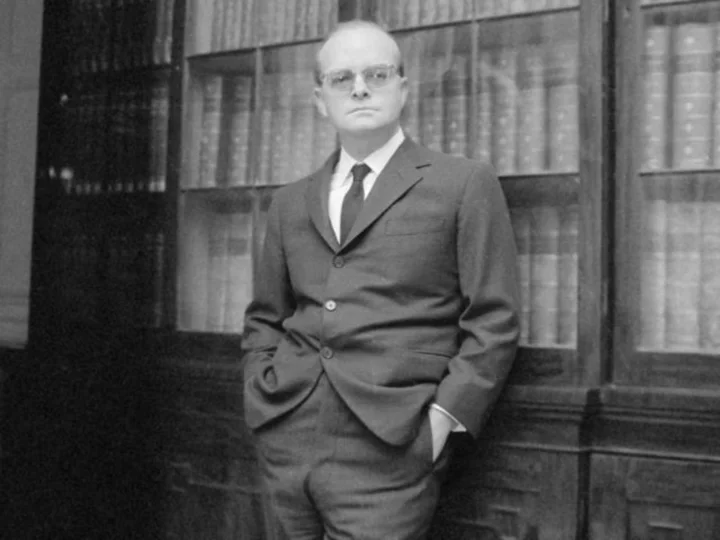An unknown story by Truman Capote has been published for the first time, after it was discovered hiding in plain sight in a red notebook belonging to the acclaimed author.
Capote, a famous American writer and novelist, was born in New Orleans in 1924 and died in 1984. His two most famous works, "Breakfast at Tiffany's" (1958) and "In Cold Blood" (1966), solidified his place among the great American authors of the 20th century.
Now, the short story "Another Day in Paradise" has been published Friday in "The Strand" magazine after being discovered by its managing editor, Andrew F. Gulli, in Washington's Library of Congress.
While Gulli had gone to the library to look for works by James M. Cain, the writer responsible for novels including "The Postman Always Rings Twice," he told CNN he also took the opportunity to search for Capote's work.
"Then in a red notebook, there was a handwritten short story from Truman Capote. Actually I couldn't believe it, this can't be happening, because, you know, I was researching his work years ago, and I could not find it," he told CNN.
The story is a 'day in the life' tale following unhappy American expat Iris Greentree, who finds herself living in Sicily after being persuaded to spend her life savings on a picturesque villa by a handsome man who later "jilts" her.
Gulli said that a "small army" of people, including one of the executives at the Truman Capote Estate, helped to decipher the handwriting and transcribe the previously unknown work, which was written in pencil in "very challenging" handwriting.
"These libraries have millions and millions of pages from all sorts of writers. So, you know, I can only guess that sometimes some of these things can just get missed," he explained.
"It's not like every single one is put in an envelope, or every single one has its place in a bookshelf -- a lot of times it's a box, and there's a little portfolio. And sometimes, you know, a manuscript can kind of get lost in the whole process, or it can be cataloged incorrectly."
"The Strand" magazine specializes in lost works and has released writing by Ernest Hemmingway, John Steinbeck and H.G. Wells.
"The whole work of finding these unpublished works is something which I have to say is satisfying when it comes to fruition. But generally it's something very, very frustrating, because you'll find that you're always coming up with nothing," he told CNN.
"What I found was fantastic was that the story is satisfying, finished, complete, it has his wry sense of humor."
The concept of the story, Gulli said, could be summed up as: "You could be living in some wonderful type of paradise, you can be living in a wonderful country, but a lot of times, if people aren't settled, the most wonderful setting on the planet can feel like a hell.
The story also delivers "a lesson that all of us can learn about attitude, perspective, and [that] human connections are many, many, many times the things that keep us going when life gets very, very rough and unbearable," he added.

